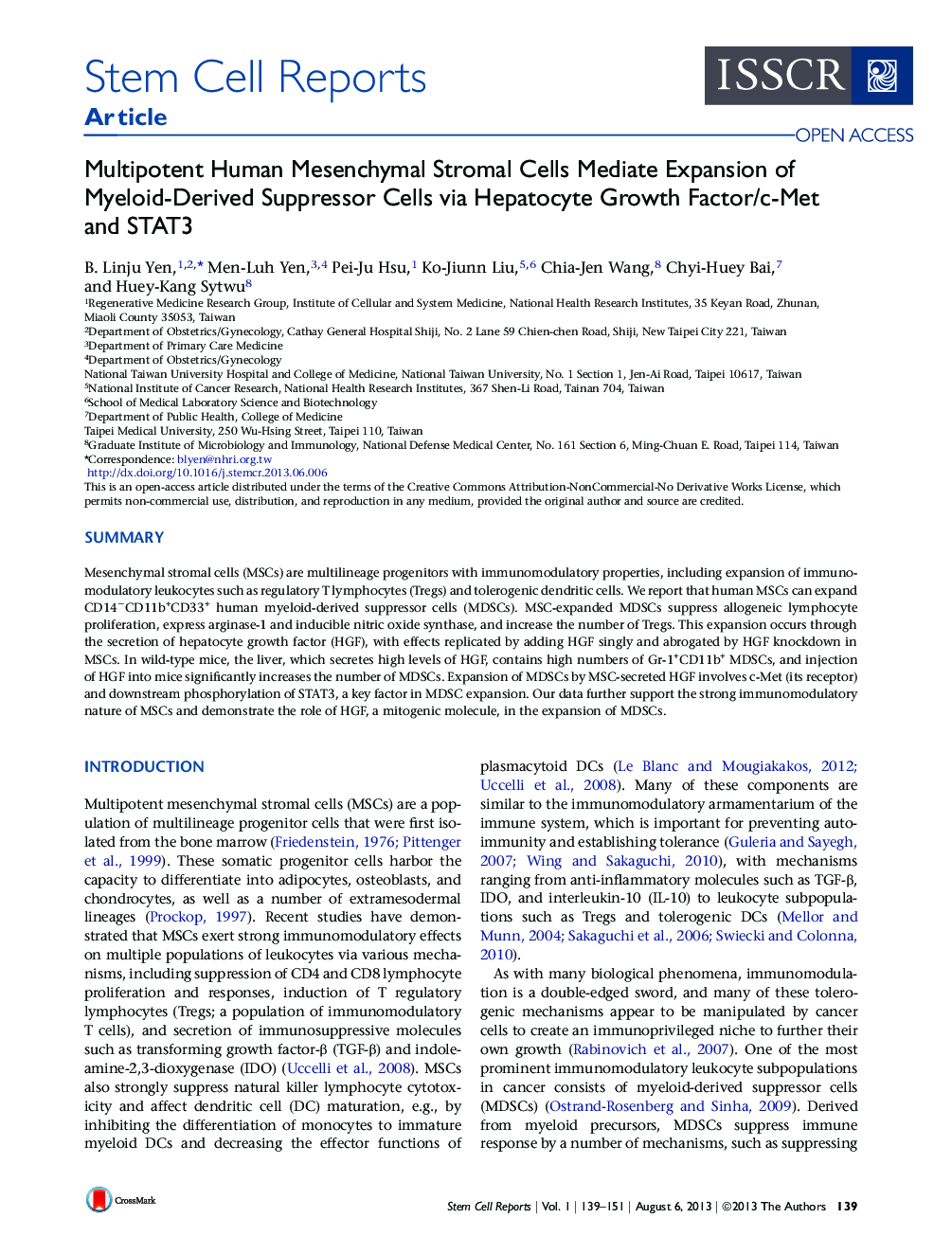| Article ID | Journal | Published Year | Pages | File Type |
|---|---|---|---|---|
| 2093527 | Stem Cell Reports | 2013 | 13 Pages |
•MSCs expand myeloid-derived suppressor cells (MDSCs)•MSC-expanded MDSCs are functionally suppressive toward allogeneic lymphocytes•MSCs expand MDSC numbers through a secreted factor, hepatocyte growth factor (HGF)•MSC-secreted HGF expands MDSCs through c-Met (its receptor) and STAT3 phosphorylation
SummaryMesenchymal stromal cells (MSCs) are multilineage progenitors with immunomodulatory properties, including expansion of immunomodulatory leukocytes such as regulatory T lymphocytes (Tregs) and tolerogenic dendritic cells. We report that human MSCs can expand CD14−CD11b+CD33+ human myeloid-derived suppressor cells (MDSCs). MSC-expanded MDSCs suppress allogeneic lymphocyte proliferation, express arginase-1 and inducible nitric oxide synthase, and increase the number of Tregs. This expansion occurs through the secretion of hepatocyte growth factor (HGF), with effects replicated by adding HGF singly and abrogated by HGF knockdown in MSCs. In wild-type mice, the liver, which secretes high levels of HGF, contains high numbers of Gr-1+CD11b+ MDSCs, and injection of HGF into mice significantly increases the number of MDSCs. Expansion of MDSCs by MSC-secreted HGF involves c-Met (its receptor) and downstream phosphorylation of STAT3, a key factor in MDSC expansion. Our data further support the strong immunomodulatory nature of MSCs and demonstrate the role of HGF, a mitogenic molecule, in the expansion of MDSCs.
Graphical AbstractFigure optionsDownload full-size imageDownload as PowerPoint slide
